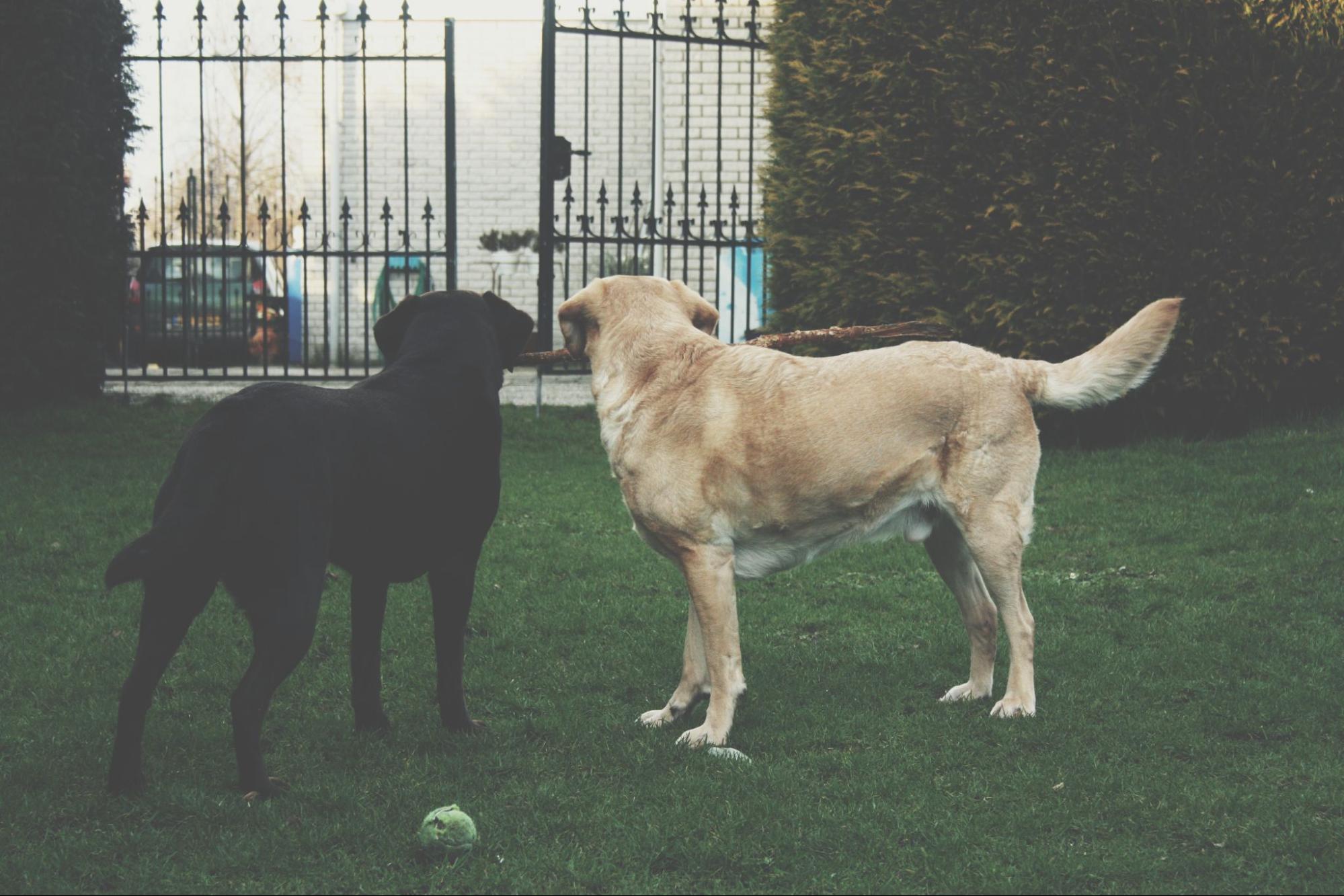How to Get a Puppy to Quit Biting
Getting a new puppy can be an exciting time, but dealing with their biting behavior can sometimes be a challenge. If you have a Labrador puppy and want to prevent them from biting, I’ve got some helpful tips for you. In this article, I’ll share effective strategies on how to get your puppy to quit biting and avoid potential Labrador bites.
When it comes to preventing Labrador bites, one of the most important steps is early socialization. Introduce your puppy to different people, animals, and environments from an early age. This helps them become familiar with different stimuli and reduces the likelihood of fear-based aggression or excessive play-biting.
Another key aspect is providing appropriate chew toys and redirecting their biting behavior towards those toys. Puppies have a natural instinct to chew, so having suitable toys not only satisfies that urge but also teaches them what they are allowed to bite on. Be consistent in redirecting their attention whenever they attempt to nip or bite on inappropriate objects.
Consistency is crucial in training puppies. Establish clear boundaries by using positive reinforcement techniques such as rewards and praise when they exhibit good behavior while avoiding any form of punishment or physical force. By being patient and consistent with your training efforts, you can effectively teach your Labrador puppy that biting is not acceptable.
In conclusion, preventing Labrador bites requires early socialization, providing appropriate chew toys, and consistent training methods focused on positive reinforcement. By implementing these strategies consistently and patiently working with your puppy, you’ll be able to curb their biting habits effectively. So let’s dive into the details of each step and get started on creating a well-behaved furry friend!
Understanding Labrador Biting Behavior
Labradors are known for their friendly and playful nature, but sometimes they can exhibit biting behavior that may cause concern for their owners. Understanding why Labradors bite is essential in order to address the issue effectively and prevent any potential harm.
- Teething Stage: Like human babies, puppies also go through a teething stage where they feel discomfort due to new teeth erupting. This can lead to increased chewing and biting behavior as a way to alleviate the discomfort. It’s important to provide appropriate chew toys and redirect their attention towards those instead of your hands or furniture.
- Exploration and Play: Puppies explore the world around them using their mouths, which includes nipping and biting during playtime. While it may seem harmless initially, it’s crucial to establish boundaries early on. Encourage gentle play by offering soft toys or balls, and avoid games that encourage aggressive behavior like tug-of-war.
- Lack of Socialization: Insufficient socialization during puppyhood can result in fear or anxiety-related aggression later on in life. Expose your Labrador to various environments, people, animals, and situations gradually and positively reinforce good behavior with treats or praise.
- Attention-Seeking: Some Labradors resort to nipping or biting as a way of getting attention from their owners. If you react strongly when your puppy bites you even out of frustration, they might perceive it as attention or playtime. Instead, ignore the behavior by turning away or leaving the room briefly until they calm down.
- Separation Anxiety: Labrador Retrievers are known for their loyalty towards their owners and can experience separation anxiety when left alone for long periods of time. This anxiety may manifest as destructive chewing or excessive biting behaviors aimed at relieving stress caused by loneliness.

Setting Boundaries and Consistent Training
When it comes to teaching your puppy to quit biting, setting boundaries and implementing consistent training techniques are key. By establishing clear rules and expectations from the start, you can help prevent Labrador bites and promote a well-behaved canine companion. Let’s dive into some effective strategies for achieving this.
- Start with Socialization: Proper socialization is crucial for puppies to learn appropriate behavior around people and other animals. Introduce your puppy to various environments, people of all ages, and friendly dogs in controlled settings. This exposure will help them understand how to interact without resorting to biting or aggressive behavior.
- Establish a Routine: Dogs thrive on routine, so create a structured daily schedule that includes feeding times, playtime, rest periods, and training sessions. Consistency in their daily routine will not only provide them with a sense of security but also reinforce the desired behaviors you’re trying to instill.
- Use Positive Reinforcement: Reward-based training methods are highly effective when it comes to discouraging biting behavior in puppies. Whenever your pup shows restraint by not biting or redirects their attention away from inappropriate chewing, praise them enthusiastically and offer treats or toys as rewards. This positive reinforcement reinforces good behavior while redirecting their focus away from unwanted biting habits.
- Teach Bite Inhibition: Puppies explore the world through their mouths, which means they may engage in playful nipping or mouthing behaviors initially. However, it’s essential to teach them bite inhibition—how to control the force of their bite—to prevent accidental injuries later on. When your puppy bites too hard during playtime, let out a high-pitched yelp or say “ouch” loudly to mimic how another puppy would react if hurt. This feedback teaches them that rough play leads to negative consequences.